
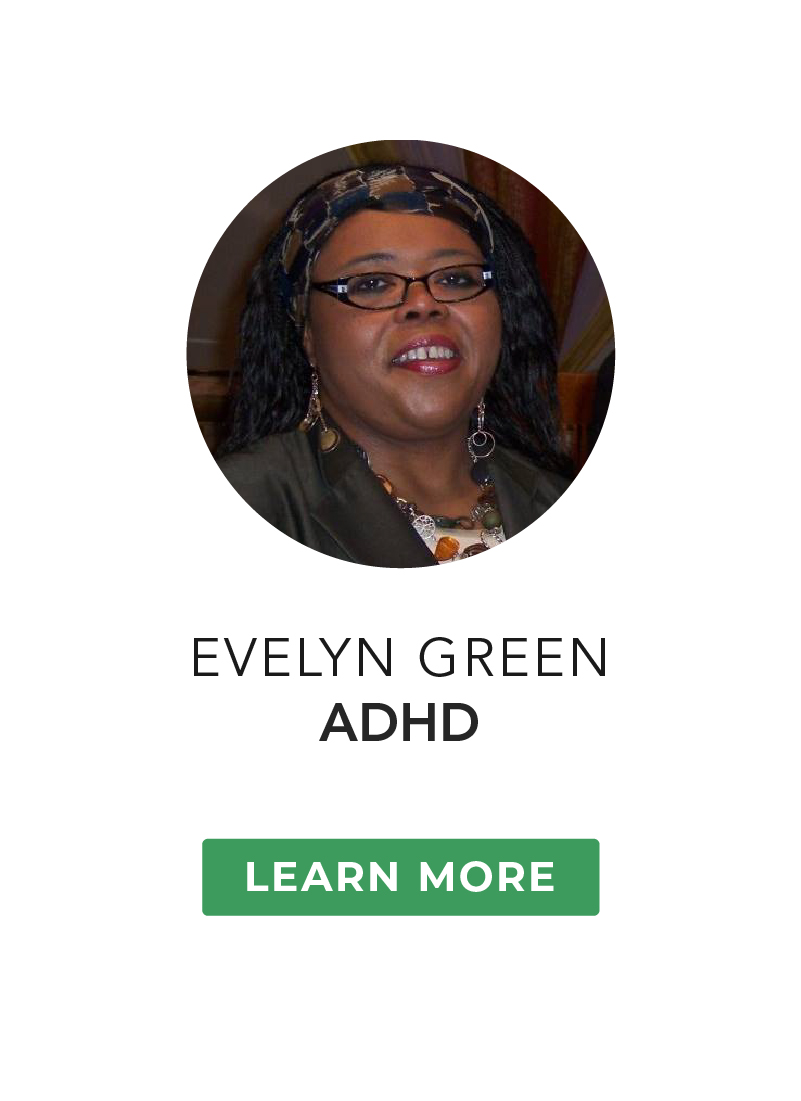
Evelyn Polk Green
ADHD and Chronic Disorganization: Moving Forward Even While Stuck in Neutral and the Wheels are Spinning
Individuals with ADHD often find themselves in a state of chronic disorganization which ultimately costs them personally, professionally and even financially. This presentation will give professionals working with these individuals insight on how they get to this state of chronic disorganization, why they often remain stuck and the emotional toll chronic disorganization can take on the individual, their family, friends and work colleagues.
Evelyn Polk Green, MSEd, is a past president of both ADDA, the Attention Deficit Disorder Association and CHADD (Children and Adults with Attention-Deficit/Hyperactivity Disorder). Evelyn is an adult with ADHD and the mother of two adult sons, Perry and Robert, both of whom also have ADHD. Active in child and adult mental health advocacy for almost 30 years, her emphasis has been bringing ADHD awareness to marginalized and underserved communities. Evelyn has been an educator in the Chicago Public Schools for over 35 years, currently working as an administrator, planning professional development programs for early childhood special education professionals and families.


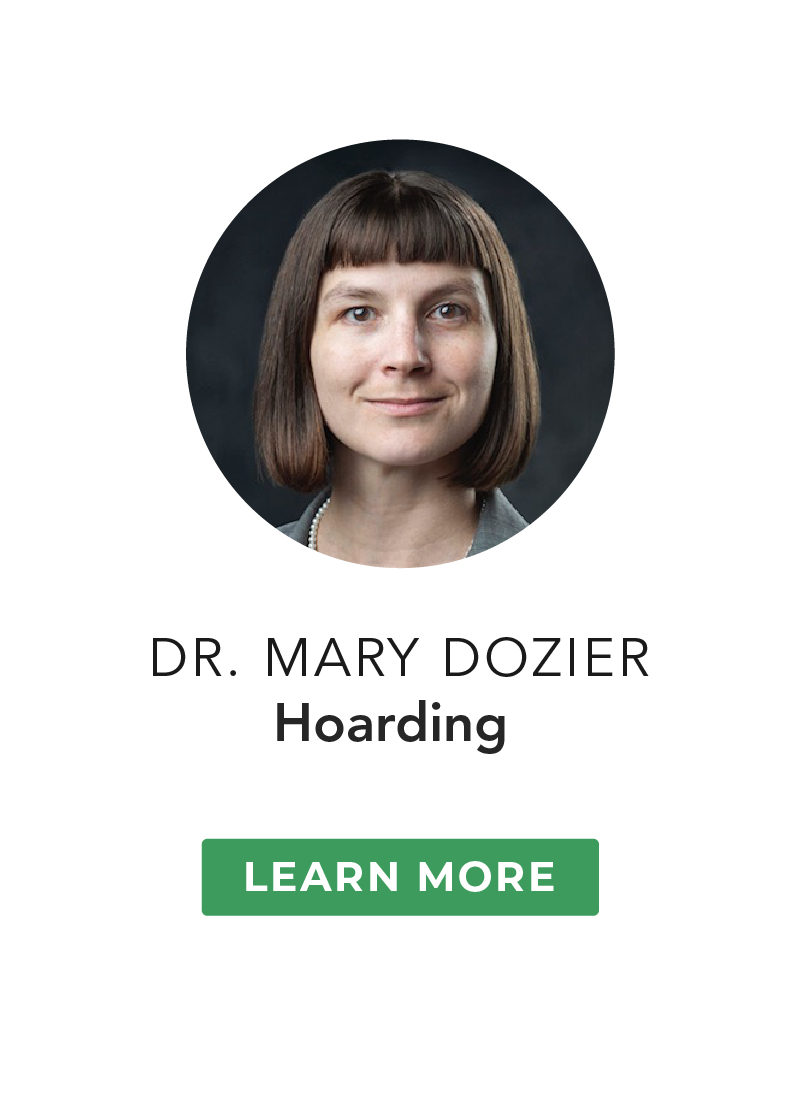
Dr. Mary Dozier
Project RECLAIM: Using Motivational Interviewing to Help Older Adults Reduce Clutter and Increase Meaning in their Lives.
Project RECLAIM is a novel intervention which combines intensive motivational interviewing with in-home sorting practice focusing on increasing functionality of the home. The presentation will be a combination of recent research findings on the RECLAIM intervention while also supplying training on how professionals can implement the treatment within their own work.
Mary E. Dozier, Ph.D., is a licensed clinical psychologist and a tenure-track Assistant Professor in the Department of Psychology at Mississippi State University. She completed her graduate work at the San Diego State University/University of California, San Diego Joint Doctoral Program in Clinical Psychology in 2019, following a one-year clinical internship with a geropsychology emphasis at the South Texas Veterans Health Care System. She has over 40 peer-reviewed publications on the characterization, assessment, and treatment of hoarding disorder across the lifespan and her work has been funded by the American Psychological Foundation and the National Institute of Mental Health.


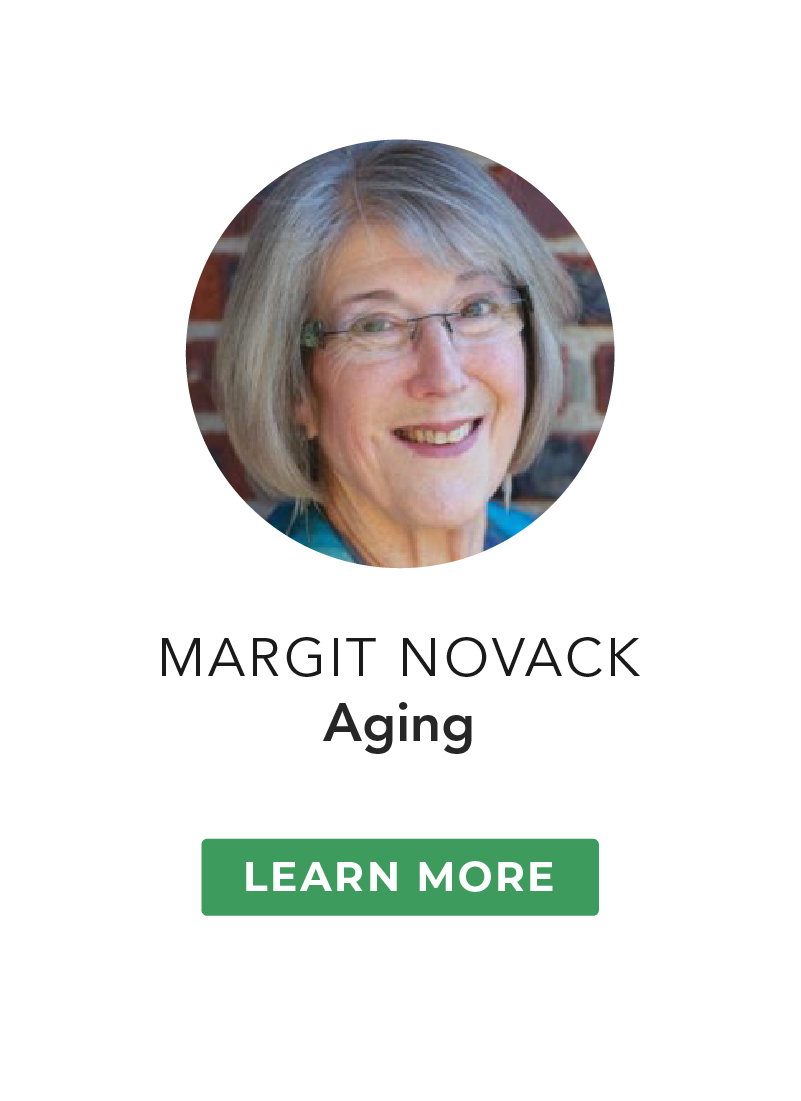
Margit Novack
Storytelling: Harnessing Your Superpower
Storytelling is more than stories. It's a tool that Professional Organizers can use to help develop rapport, broaden horizons and change client behavior. Using stories from her book Squint as a backdrop, author, move manager and thought leader Margit Novack shares how Organizers can increase success with clients, colleagues and family members through storytelling.
Margit (rhymes with target) Novack is an author, pioneer in Senior Move management and a thought leader in successful aging. In 1996, Margit founded Moving Solutions, a business helping older adults relocate. She helped found the National Association of Senior Move Managers (NASMM) and became its first President. She created courses, training programs and professional certifications in Senior Move Management and working with older adults and has been a speaker at numerous NASMM, NAPO and ASA conferences.
In 2020, Margit left the traditional work world and wrote Squint: Re-visioning the Second Half of Life. In Squint, Margit pairs personal stories and stories from her decades as A Senior Move Manager, with larger themes (downsizing, caregiving, forgiveness, estrangement and more). The result is a profound yet eminently readable book that uses stories to communicate important truths.
Using stories from Squint as a backdrop, Margit shows how storytelling can be used to change people’s beliefs, attitudes, values and behaviors, and how our unique perspective as Professional Organizers can add meaning and depth to client stories. The result is a program that is memorable, impactful and inspiring.

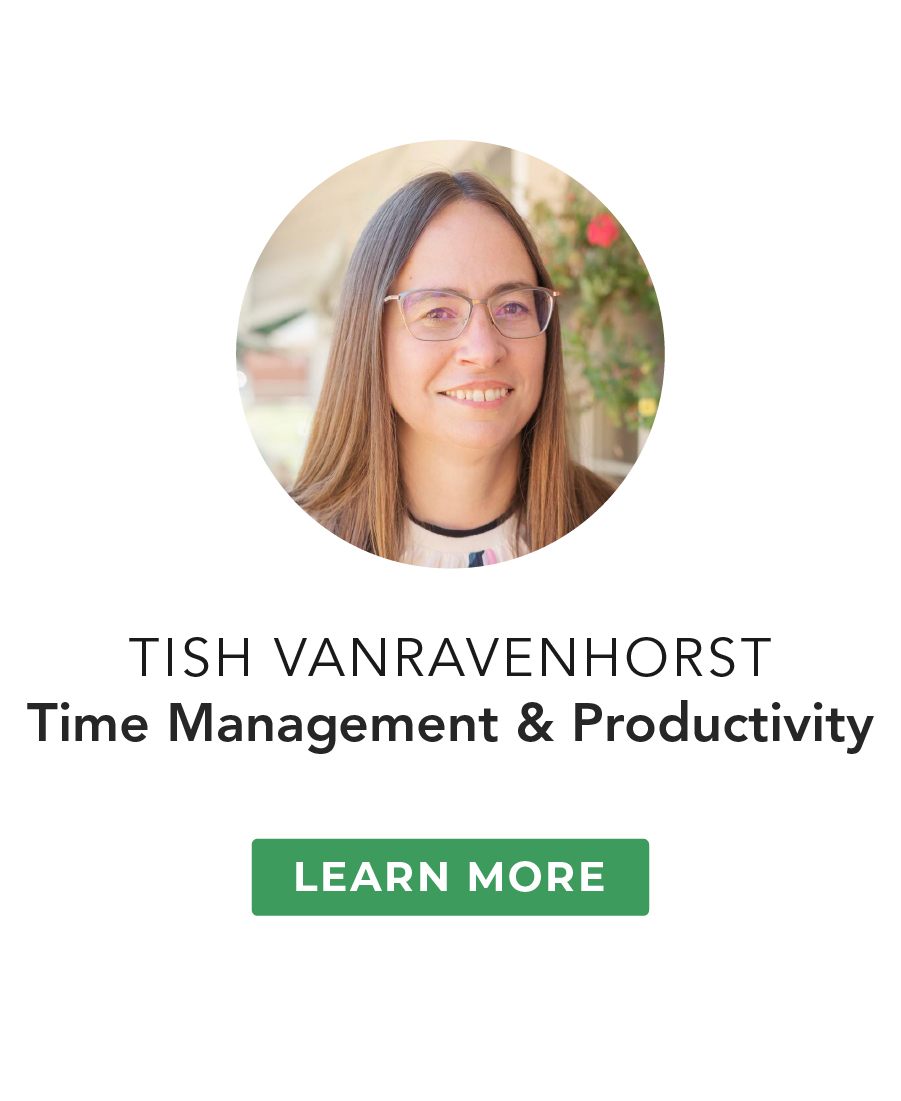
Tish Vanravenhorst
Time Management for the Chronically Disorganized
Discover effective time management strategies for aiding clients with chronic disorganization. Learn to tackle common challenges such as clients overbooking themselves and being tardy, which impedes your productivity with them. Delve into insights from experts and the personal experience of a self-admitted chronically disorganized speaker who thrives in business. Gain practical techniques to empower both yourself and your clients, fostering engagement and efficiency in their sessions. Through interactive discussions and activities, you’ll develop skills to help your clients reclaim control of their time. Enhance your effectiveness as a professional organizer and cultivate stronger client relationships. Equip yourself with essential tools to navigate the complexities of chronic disorganization effectively.
Tish VanRavenhorst, an executive coach at Next Level Teams, prioritizes delivering exceptional value to clients across diverse sectors. Recognized for pivotal contributions to team development within the Department of Defense and Navy, she specializes in coaching professionals at all levels. Certified by Shipley Communications and Gallup, Tish empowers clients to maximize strengths and navigate challenges effectively. With a focus on time management and overcoming organizational barriers, she equips individuals to achieve tangible results. As CEO of South Kitsap Backpacks for Kids and a dedicated Rotarian, Tish's commitment to client value and community impact defines her as a trusted partner in their growth journey.


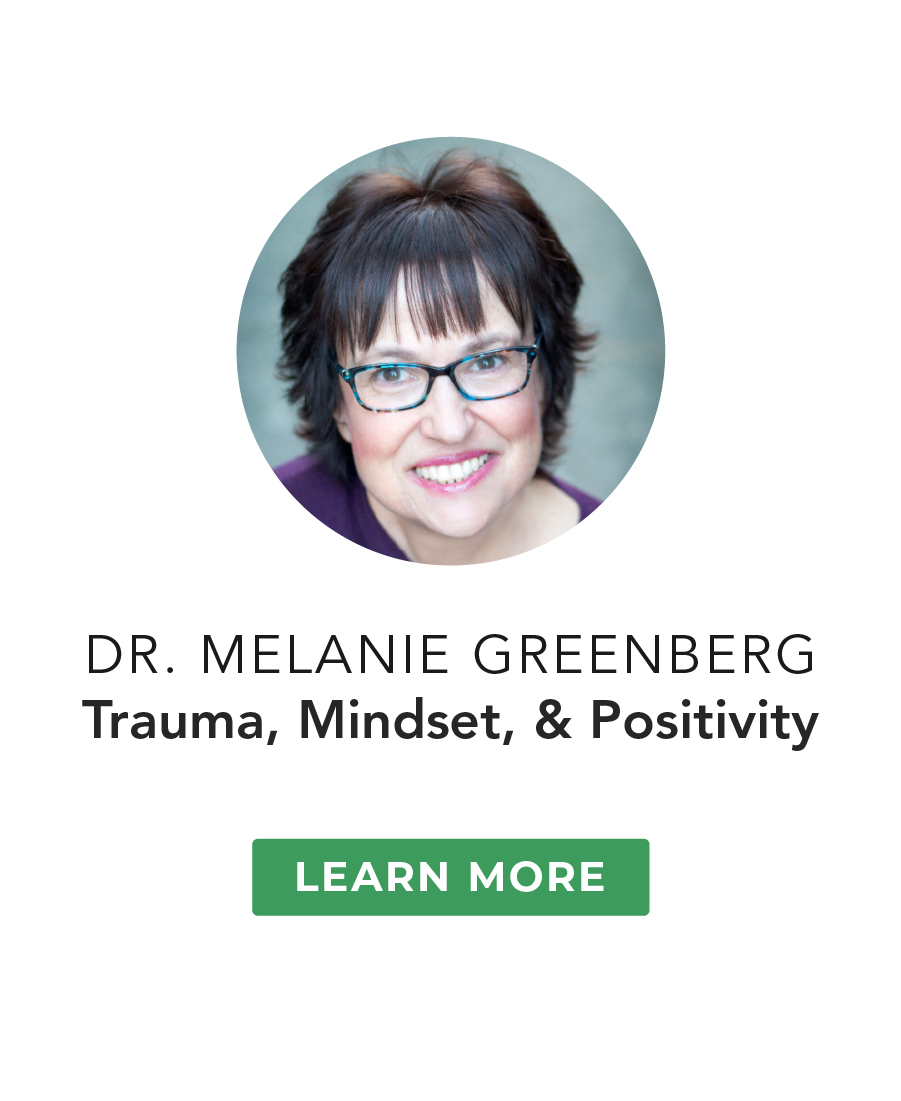
Dr. Melanie Greenberg
Managing the Stress of Chronic Disorganization with Mindfulness, Neuroplasticity and Positive Psychology
This presentation can help you manage stress from dealing with disorganized, and distressed clients and hoarders. It can provide new brain-based knowledge and practices to inform your work. The focus on mindfulness can help reduce mindless emotional reactivity and improve attention. The focus on positive psychology provides a new set of tools to improve mood and focus on strengths. The focus on brain change can create hope and optimism which can help overcome the sense of defectiveness, failure, and incompetence experienced by the chronically disorganized.
Dr Melanie Greenberg is a psychologist, author, speaker, and coach, with 25+ years of experience. A recognized expert on stress management, health, and relationship challenges, she draws on neuroscience, mindfulness, and positive psychology in her work. Melanie is the author of The Stress-Proof Brain an Amazon bestseller in Neuropsychology and The Stress-Proof Brain Guided Journal (2024). She writes The Mindful Self-Express blog, which has over 20 million pageviews, for Psychology Today.. A popular media expert, she has been featured on CNN, Forbes, BBC radio, ABC News, Yahoo, Lifehacker,Business Insider and the Huffington Post.


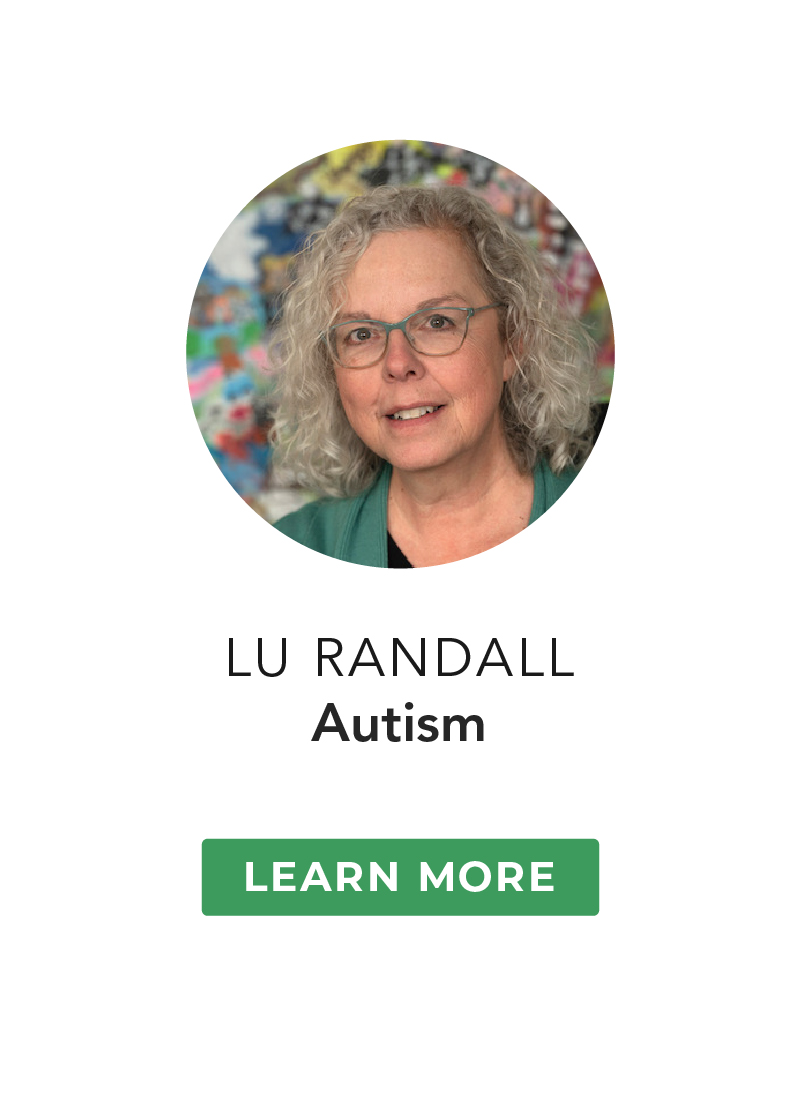
Luciana Randall
Moving Forward with Autism and Neurodivergences
People born with different brains experience life in unique ways. These affect information processing from input, to comprehension, to choice of spoken or behavioral responses. Join this session to learn why: less is more, slower is more efficient in the long run, repetition can be bad, and how to use the latest brain science to help move your clients steadily onward. En avant!
Lu Randall has learned most of what she knows about neurodiversity from autistic people and their families who have generously shared their personal experiences, challenges, and successes over the past 30 years. She uses her masters degree in rehabilitation counseling to actively watch and listen and helps people make individualized plans, across all ages and stages of life. She enjoys teaching others how to apply current brain research to their work as well, encouraging learners to use practical strategies in addressing their professional goals.



Lessons Learned And Insight Gained On A Ten-Year Journey With Larry
This case study will look at the process of and the outcomes in working over a ten-year period with a client who experiences hoarding. From one forced clean-out, to three residential moves, to vacating a storage unit and most recently, managing the risk of housing loss due to clutter, discover the lessons and insights that unfolded over time.
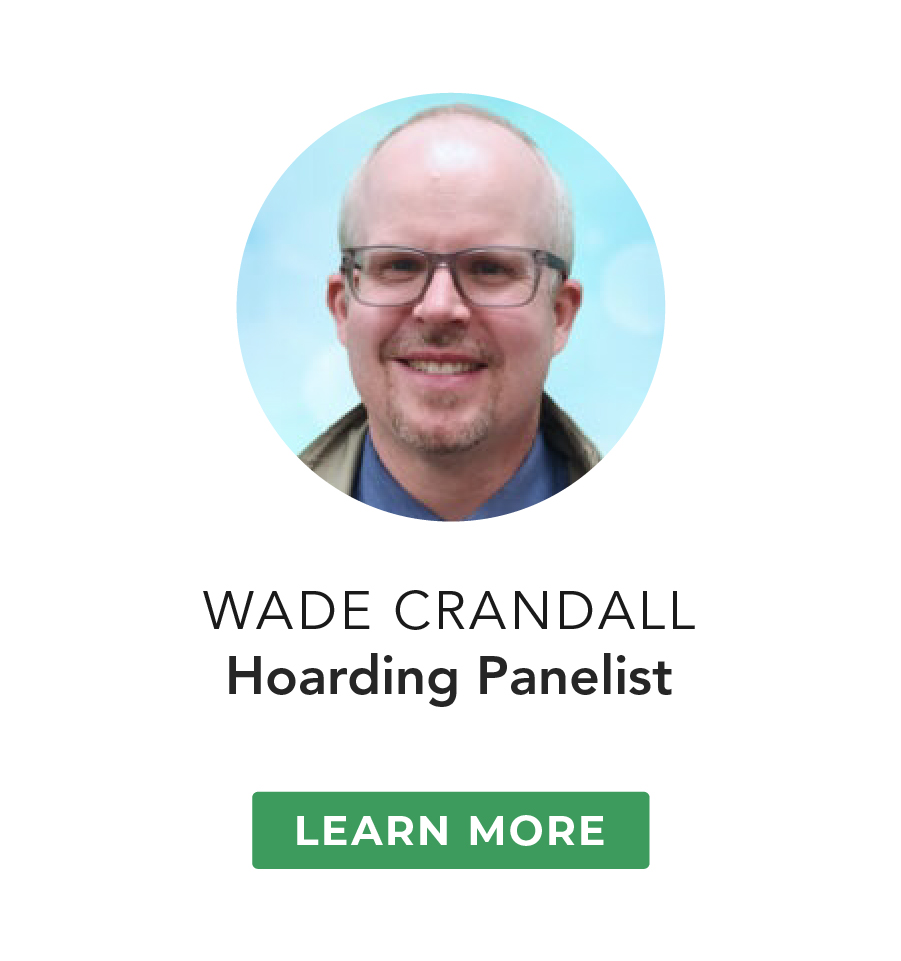
Wade Crandall
Wade Crandall has 15 years of experience in the psychology and the mental health services industry. Wade currently serves as the Clinical Site Director of Nystrom and Associates in Hugo, MN. He is skilled in the implementation of treatment for hoarding, including exposure and response prevention (ERP). He is a board approved supervisor and he served as the Vice President of the Minnesota Hoarding Task Force from 2018-2022. He has done many talks about hoarding and was featured on TV as an expert for a piece about hoarding by Jennifer Mayerle at WCCO in 2022.
Wade’s overall theoretical approach to helping people with mental health conditions is cognitive, behavioral, and existential. He does much work with those that hoard with exposure and response prevention (ERP). In ERP, he helps clients face their fears about getting rid of things and manage the discomfort of not bringing new things into the home that are not necessary. The ideal outcome of this approach is that the client gets desensitized to the point that they no longer feel a strong need to hoard. When necessary, he also implements strategies related to grief/loss and/or trauma. Wade is a firm believer that mental health therapy can only be effective, including for hoarding, when the client wants it. In other words, the assessed need for therapy by a provider or family member must match the client wanting this as well.
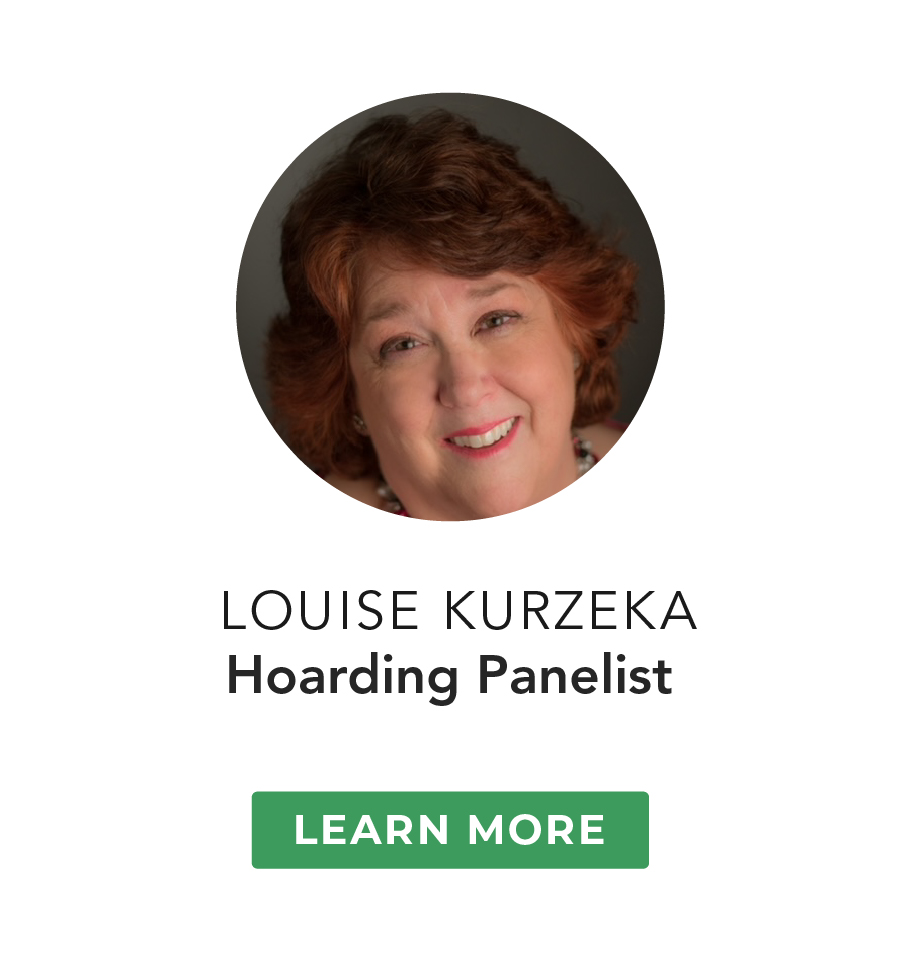
Louise Kurzeka
For the past thirty-one years, Louise Kurzeka, of Everything’s Together®, has worked with people to improve their productivity, use of space and quality of life through individualized organizing systems. Much of her time is focused on people who are downsizing/decluttering and/or managing life around brain-based differences, including ADHD, Anxiety, Depression and Hoarding Disorder. She has earned CD and ADD Specialist Certificates from ICD and was their first Teleclass Director. She is also a graduate of Coach Approach for Organizers. Louise is a founding member of NAPO-Minnesota and the Minnesota Hoarding Task Force.
A seasoned expert in the organizing field, Louise has been featured in Women’s Day, Better Homes & Gardens and Good Housekeeping magazines to name a few. She has written for Consumer’s Digest and the book How to Organize Just About Everything and the Smead booklet 100 Ideas for Better Organization. She has appeared regularly on local radio and television sharing practical solutions for everyday organizing challenges.
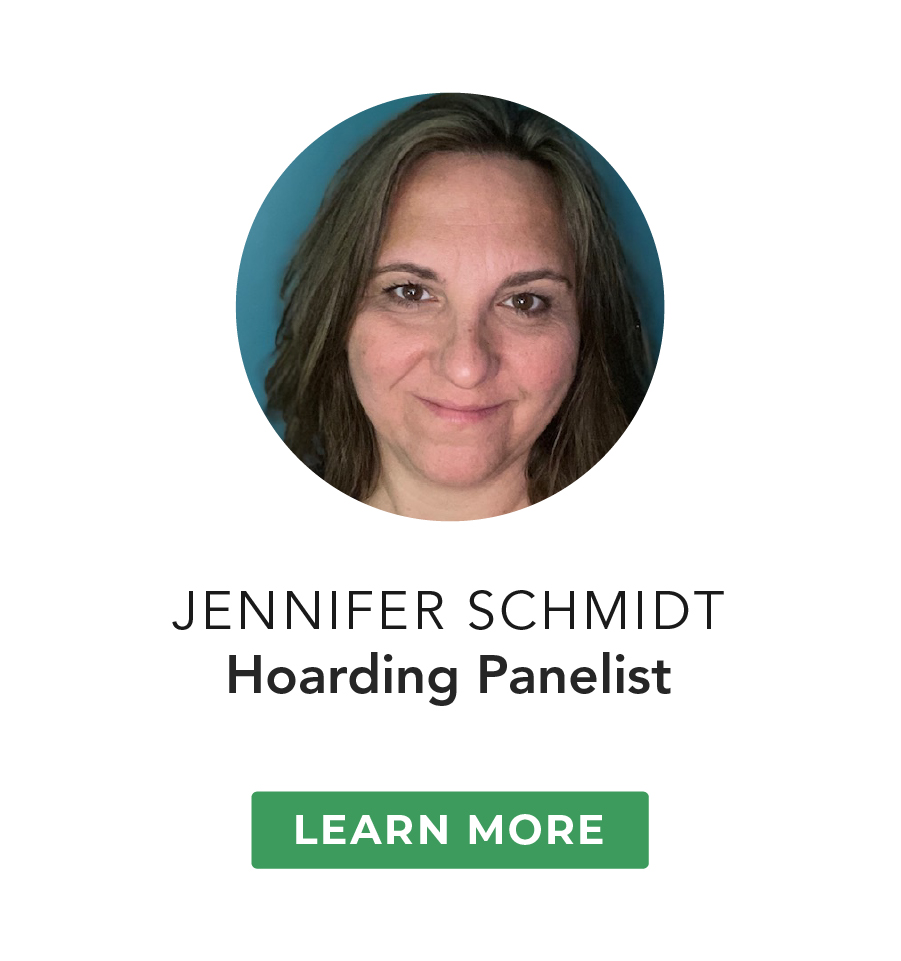
Jennifer Schmidt
Jennifer LeClaire Schmidt, OTR/L MAOT, is an Occupational Therapist specializing in mental health, with focus in the treatment of hoarding disorder and other mental health challenges that lead to excessive clutter, saving and acquisition. She is a graduate of Saint Catherine University.
At Professional Rehabilitation Consultants in Saint Paul, MN, As the lead therapist for the Hoarding Intervention Training (HIT) program, which is designed to provide physical, emotional, and educational support for individuals and their family members. Using Buried in Treasures 2nd ed. (Tolin, Steketee, Frost, 2014) as well as other evidence based learning tools.
Jennifer was elected President of the Minnesota Hoarding Task Force in May of 2022 and has been working to bring much needed Education, Advocacy and Networking opportunities to the people in Minnesota affected by Hoarding Disorder and Hoarding Behaviors.


|